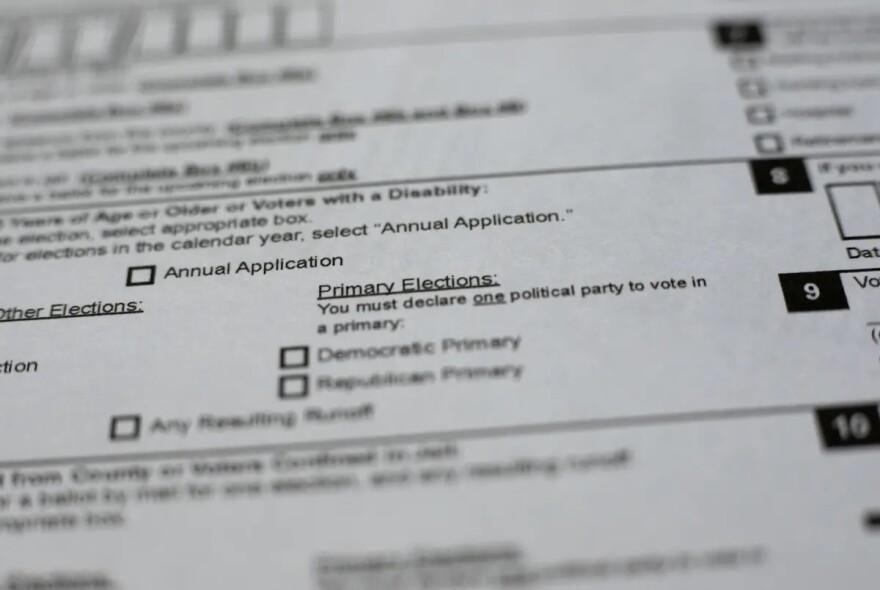The fight over expanding voting by mail in Texas during the coronavirus pandemic appears to be coming to an end in state courts, but a lawsuit continues at the federal level.
Following a Texas Supreme Court ruling that closed the door to expanded mail-in voting, the individual voters, state Democrats and civic organizations that sued to expand voting by mail based on a lack of immunity to the new coronavirus asked a state appeals court on Tuesday evening to dismiss their case.
The case was part of a flurry of litigation in state and federal courts challenging the state’s rules for who qualifies for a ballot they can fill out at home and mail in, that for now has left the status quo in place: Mail-in ballots are available only if voters are 65 or older, cite a disability or illness, will be out of the county during the election period, or are confined in jail. The Texas election code defines disability as a “sickness or physical condition” that prevents a voter from appearing in person without the likelihood of “injuring the voter’s health.”
The group of plaintiffs had previously convinced state District Judge Tim Sulak of Travis County that susceptibility to the coronavirus counts as a disability under state election law and is a legally valid reason for voters to request mail-in ballots. A panel of the 14th Court of Appeals of Texas let that ruling stand, rebuffing Attorney General Ken Paxton's effort to have the ruling put on hold while he appealed it. The Texas Supreme Court then put it on hold.
But in a separate case, the state Supreme Court last month ruled that a lack of immunity to the virus alone does not meet the state’s qualifications for voting by mail. That ruling effectively gutted Sulak's ruling and the state lawsuit. In its order, though, the court repeatedly said that it is up to voters to assess their own health and physical conditions to determine if they meet the election code’s definition for disability.
When voters cite disability to request a mail-in ballot, they're not required to say what the disability is. The voters simply check a box on the application form, and if their application is properly filled out, local officials are supposed to send them a ballot. Before the Supreme Court, the state ultimately conceded that officials can't reject those voters.
Legal challenges to the state’s voting by mail rules continue in federal courts though a panel of the U.S. 5th Circuit Court of Appeals last week extended its order blocking a lower court’s sweeping ruling that would have allowed all Texas voters to qualify to vote by mail during the coronavirus pandemic. The panel cited in part the proximity of the upcoming July primary runoffs. It’s possible the issue will end up before the U.S. Supreme Court after the runoffs.
The Texas Tribune provided this story.




